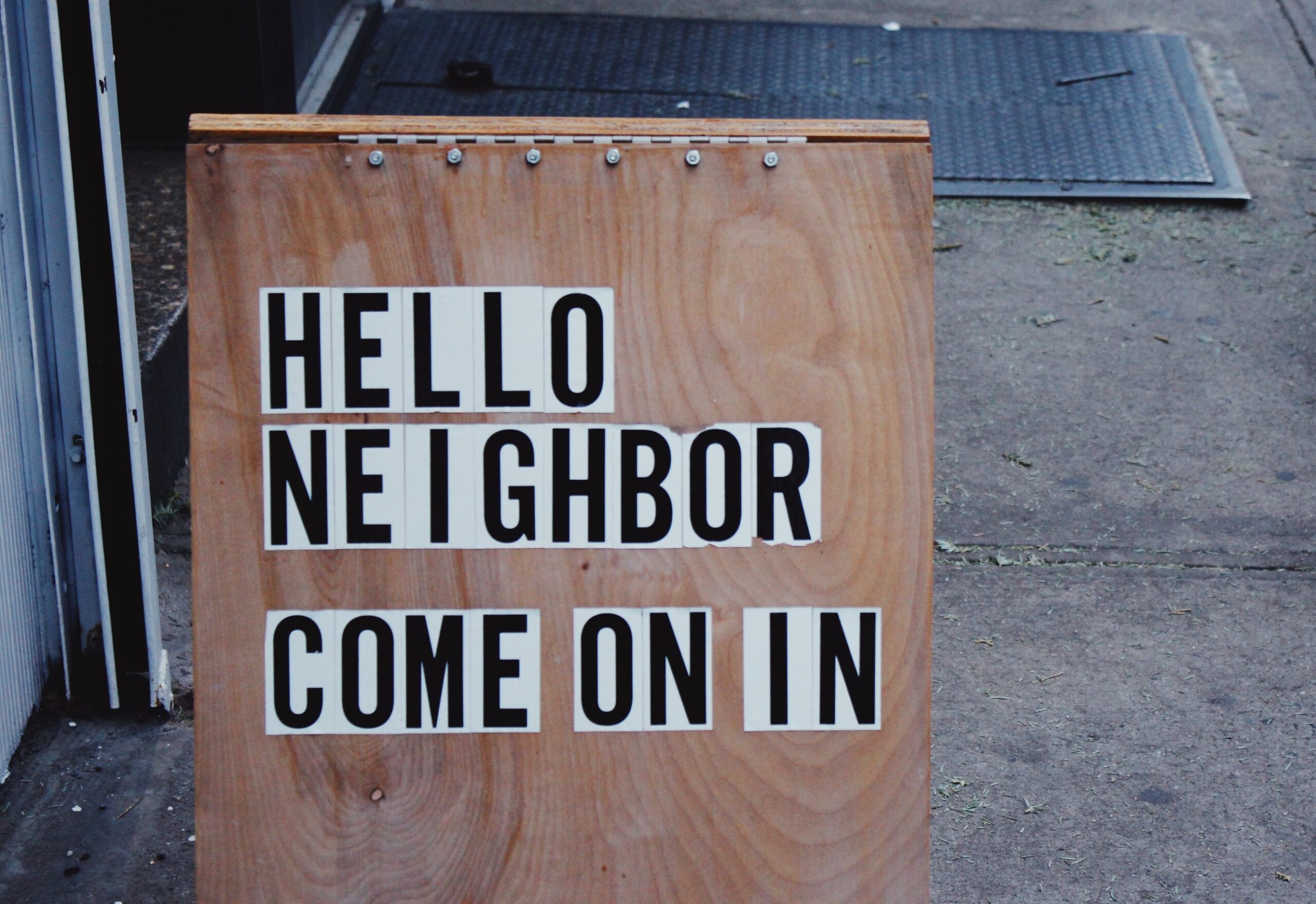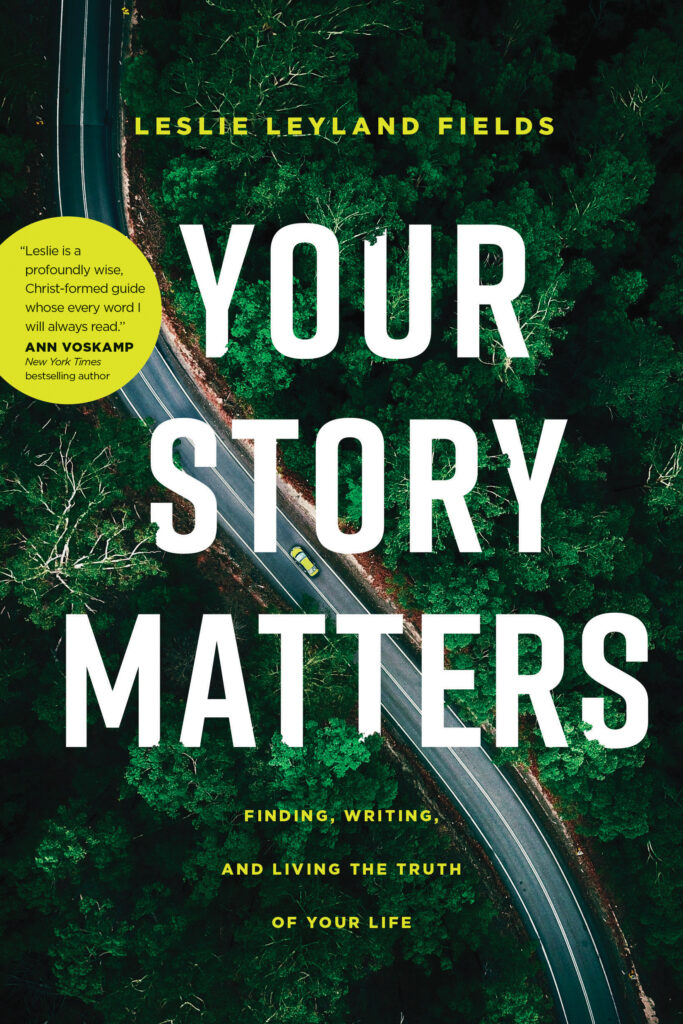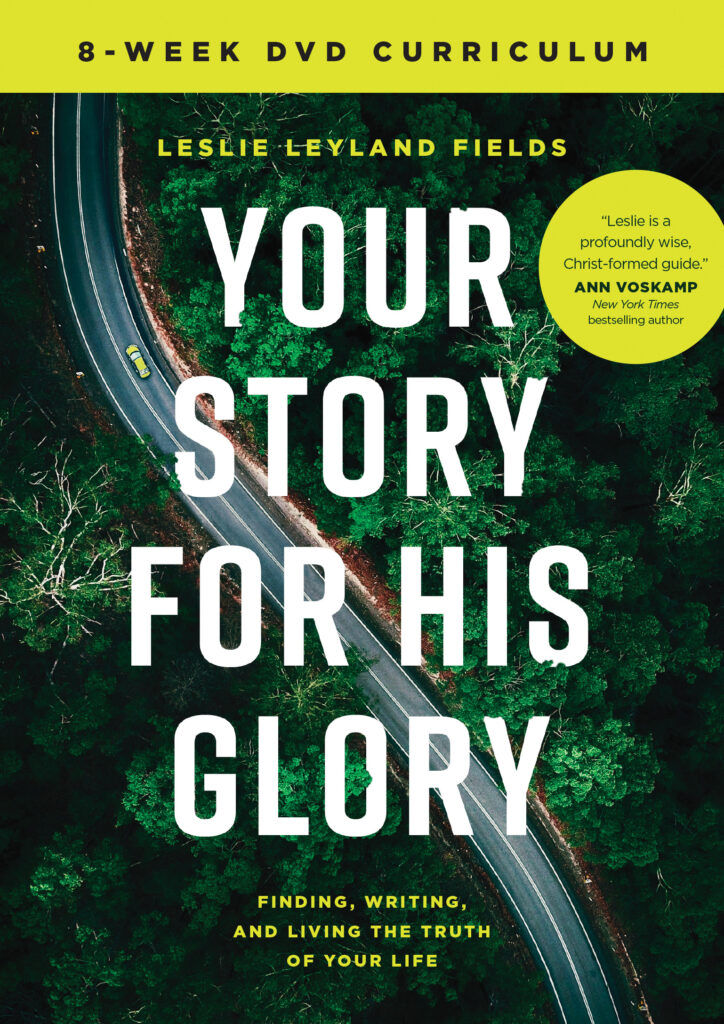We are in the grip of a virus that has locked down the entire world. In the U.S. we are reeling from violence, from racial inequality, and the feeling that our cities may never be at peace. In light of a world-on-fire—how do our stories matter?
They matter more than ever. In fact, the heartbreak and anger we’re seeing right now would not exist if we had listened and attended to one another’s stories—on all sides.
Here are three reasons that stories matter. (There are many more. But this is enough for today.)
1. In a fractious, violent world, our stories can offer healing and hope
The world is a mess. It’s always been a mess. Many of us in the U.S. are spoiled. We’re not used to social chaos. We’re used to stability. Prosperity. People in other countries have experienced far more disruption. We’re all a mess—all over the world. We are divided by race, politics, awash in anger, hostility, and an ever-widening gap between us as neighbors.
We have allowed politics to divide the church
This is true even in the body of Christ. In the U.S., we who want to be known as the people of God, people of light and salt and grace are known instead as a political party. As the Church, we have not pursued justice and peace for all. We have allowed racial divisions, economic divisions to continue among us.
As the Church, we have not pursued justice and peace for all. We have allowed racial divisions, economic divisions to continue among us.
Tweet
In Jesus’ day it was happening as well. People were so divided by politics and religion, everyone in their own enclave not speaking to the other. A lawyer approached Jesus about eternal life—how do I get it? Jesus asked a question back—what does the Law say? How do you read it?
Chaos, politics, divisions, oppression
The lawyer knew the answer – perfectly! He answered without a beat: “Love the Lord your god with all your heart mind soul strength, and love your neighbor as yourself.”
He was smart and educated in the word of God. But remember the time in which he lived. Chaos, politics, divisions, oppressed by Rome, anger, hostility. Loving God? Oh yeah, I got that one. But—love my neighbor? Who is my neighbor? He believed he knew who his neighbors were: his buddies, those exactly like him.
Jesus told stories all the time
Jesus knew what was in his heart, so he told a story. Jesus told a story because he knew that world, and our world now, needed a story. We need this story:
A man was traveling from Jerusalem to Jericho, and some robbers attacked him, took his money, stripped his clothes, beat him bloody and unconscious . .. And a democrat saw him and walked right by him without missing a beat. Then came a republican who did the same. Then came an evangelical tea-partyer walked the other way and finally along came a liberal, or a socialist—someone many of us would think of as the bad guy. He stopped, bound his wounds, loaded him in his truck and drove him to a fancy hotel and paid for his care.
And switch the groups around, saved by the republican, whatever. Do you see?
The story of the good Samaritan is a story about us, about people so wrapped up in our politics and religiosity we walk right by our neighbor, bleeding to death. And the story of the good Samaritan is also a story about who we can be, who we’re supposed to be, as human beings.

In the midst of the darkness of this present crisis, we’ve all seen flashes of light. Of mercy. Policemen kneeling with those silently protesting the death of George Floyd. People rushing to help the injured, putting themselves in peril to save another. African Americans and police sitting down together, sharing a meal, sharing perspectives, listening to one another. Volunteers going out the next morning after the rioting and cleaning up the mess they didn’t make. Men and women risking their freedom for the sake of those who daily experience racism.
When we see these acts of sacrifice and reconciliation, We ALL suddenly remember who we are and what we’re here for:
Blessed are the peacemakers.
No greater love has anyone than this: that we lay our lives down for one another.
We who have been healed by the blood of Jesus, we are meant to be healers.
We who have been forgiven can forgive.
We who have been reconciled to God are meant to be reconcilers.
The story of the good Samaritan is a story about us, about people so wrapped up in our politics and religiosity we walk right by our neighbor, bleeding to death.
Tweet
This is what sharing our stories—and listening well to other stories—can do. The world needs stories that speak peace, reconciliation, and sacrifice, stories that bind our wounds and show us how to forgive. We need this too.
2. In a divided world, our stories can reveal that the “other” is our neighbor
Because we are all just like this lawyer, who knew the right answers—the law? Oh yeah—Love God with all you’ve got—and your neighbor too”. He knew God’s word—but he had drawn thick lines between people: lines of race, of education, of religion, of politics. He was safe and happy in his own enclave. As we are in ours.
Jesus constantly calls us out to love people who look and sound very different than us.
Jesus healed a naked, crazy violent man whom everyone else feared! He healed the untouchables—the lowest of the low in Jewish culture—men with leprosy. He touched and healed a woman who had been bleeding for 12 years—who had to go around saying, “Unclean! Unclean!”
Think how Jesus changed people’s names and identities:
A woman caught in adultery: They called her despised. Prostitute. Jesus called her Forgiven.
A tax collector, Matthew, labeled a traitor. Jesus named him Disciple and Friend.
Lepers were called unclean, outcasts. Jesus called them Healed.
A zealot, a violent revolutionary. He called Brother.
A Samaritan woman: despised and disvalued twice because of her gender and ethnicity. Jesus renamed Blameless.
He changed all our names and labels, didn’t he?
He renamed me: from invisible fatherless girl, to Beloved Daughter.
He never changed a Pharisee to a Sadducee or a Herodian to a Zealot. He didn’t change an Ethiopian to a Jew. He swept us from our native country—the kingdom of darkness to a new country—the kingdom of light. He gave us new names because he gave us a new country with a new king.

This is what happens when we share our stories and listen to the stories of others. As we write into our own lives, we see the hands of God all through our past. We see the ways he has rescued and delivered us and changed our names. Every one of us, carrying the image of God.
We can let go of simplistic labels
Who is my neighbor? Leper, prostitute, looter, shooter, republican, democrat, black, white. He’s no longer called a Samaritan. He’s called, “The One Who Had Mercy.”
Let that be our name too as story-sharers and listeners: “The one who had mercy.”
This sounds like everything we need right here: stories that offer healing and hope. Stories that reveal to us that the other is really our brother and sister.
Who is my neighbor? He’s no longer called a Samaritan. He’s called, “The One Who Had Mercy.” Let that be our name too as story-sharers and listeners: “The one who had mercy.”
Tweet
This isn’t about safe, blah, happy, sanitized stories. Christian writers have already tried that. For too long we’ve hidden behind our fortress walls writing and publishing happy, positive, victorious stories for us, for one another—stories where no one gets drunk or high or gets murdered or leaves the church or converts to Buddhism.
The gospel and the Christian life are anything but safe.
It’s strange that the stories we preach to ourselves are all about comfort and security. The reality is that the Christian life is dangerous and risky.
- If your right hand offends you cut it off.
- Love your enemies.
- Take up your cross and follow me.
- I will show you how much you must suffer for my name.
- Anyone who loves their mother or father more than me is not worthy of me.
- NARROW is the gate that leads to life and FEW there be that find it!
- Who is my neighbor?
Every time Jesus spoke, every time he ate and drank, every time he told a story, he shocked people. He valued people no one else valued: the lepers, the blind, the insane. He had deep friendships with women. This Messiah was viewed as dangerous and scary because of the inclusiveness of his love and forgiveness! HE threatened everything, especially the most religious.
The gospel is not safe—even for us.
These words that heal are not always happy words. We have something better to offer than safety and happiness. It’s this:
3. In a dark world, our stories can offer illumination and truth
If our stories are going to offer healing to the world, it must do this one thing.
Our stories must tell the truth.
Our stories must tell the truth about our human existence—all of it. In all its sadness and folly and frivolity and tragedy. And yes, in all its hope and goodness and grace. All of it! What it means to be human; what it means to be alive here and now in this world.
We can do this—we can offer these truths and listen for these truths and it is enough, because all of life is suffused with the presence and reality of Christ.
As Frederick Buechner says,
“Either life is holy with meaning or life doesn’t mean a damn thing.”
Life is holy with meaning—just as it is! In the seeming futility as well as in the good and the joyous—So let us write out of real life.
When we write stories that heal and illuminate, when we listen to our brother and sister for stories that expose truth and bring beauty … will those stories stop bullets? Maybe. It’s possible.
This is my heart for us, dear friends around the world.
Your Story Matters is an excellent resource for thoughtfully writing your story—for healing, for your legacy, and simply because God has given each of us a story.
NavPress has resources for listening well to people’s stories and understanding viewpoints other than your own. You can find them here.




